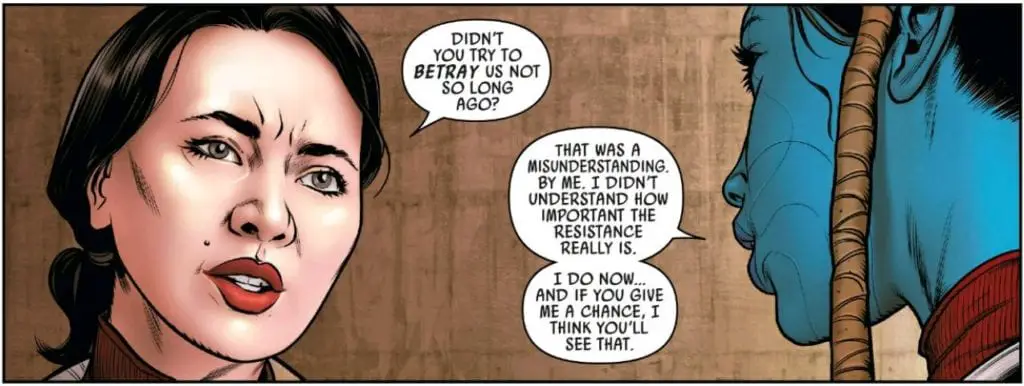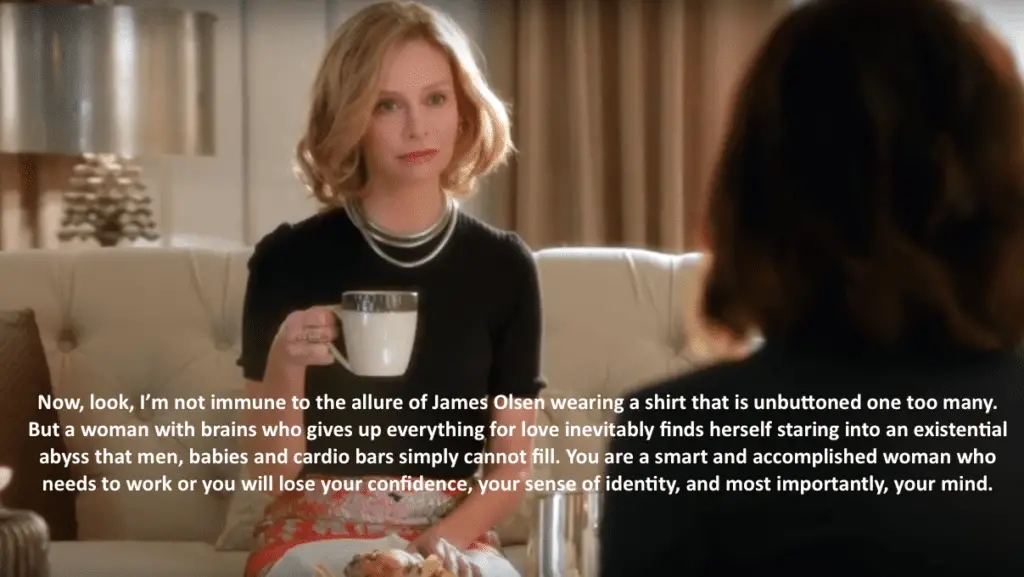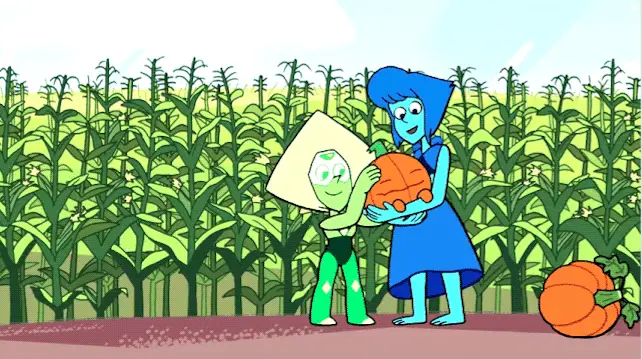Whether it’s a well thought out, well-written relationship or a particularly rich headcanon, ships, to me, are like finding cinnamon in my chocolate chip cookie. An unexpected delight that I’m going to savor every bite of. Mediocre or poorly-done ships on the other hand are like finding raisins in my cookie. I totally get that other people enjoy raisins in their cookie and may even prefer eating raisins to eating most of the cookie itself. That’s awesome. I, however, don’t like raisins in my cookies. I will eat around them and they may even sour me on eating that cookie altogether, especially if people start fighting over whether raisins are better than cinnamon or whether the entire cookie should be thrown out just because someone thought the raisins were chocolate chips and they’re disappointed…and I just realized this metaphor may be getting out of hand.
What I’m trying to get at is that I don’t engage in media of any kind primarily for ships. I watch for thoughtful, fully fleshed-out, interesting characters first and foremost. Rich and complex themes are a close second, then plot and worldbuilding. Which is to say that strong characters and themes can make up for weak plots or worldbuilding but rarely the other way around.
Ships, both canonical or subtextual, end up coming in at some point after all that. Which isn’t to say that I don’t like ships, I do. They’re just a bit further down the priority ladder for me than I think they are for many, if not most, people I engage with in fandom circles. I should clarify that by ‘ships’ here I’m referring to romantic/sexual relationships between characters and not bromances, friendships, found family, etc. I find the latter far more engaging, but I’ll get to that in a bit.
Shipping is Secondary
Though I hinted in my convoluted cookie metaphor that sometimes ships can sour me on a piece of media, they actually rarely ever make or break it for me. If I’m unhappy with onscreen ships, I’m pretty content with headcanons. I want to see three dimensional characters interacting with each other. I can fill in the romance blanks if I have the inclination to do so, but I don’t want those aspects front and center. Give me characters who are people conflicting, engaging, growing, and challenging each other; I live for fleshed-out character dynamics.
Only a truly abusive canon ship or one with really frustrating or upsetting implications can completely turn me off of a show or book. Bland, mediocre, or rote ships, while annoying, I can overlook if the characters still engage me.
Which isn’t to say that I don’t ship characters at all. I’m actually a quite proud multishipper. Only very, very, rarely do I have one true pairings (otps) without side or alternative options alongside them. You probably shouldn’t ask me how many tiny crackships I have from the Star Wars comics (the answer is dozens). At the same time, one of my favorite pieces of media is A Song of Ice and Fire, and I don’t consider that a really ship-heavy book series. I have three, maybe four, ships that like from it, and only one that I consider “my” ship (Brienne x Sansa).

With how ship-driven much of fandom interaction is, I sometimes feel alone in the fact that I won’t watch a show or read a book for ships alone, no matter how many recs I get (Though I’m fairly new to online femslash fandom culture, I’ve found my experiences there to be especially ship-driven). This explains why I’m so choosy with fanfic. I want my fanfic to be character and theme-driven, too. The vast majority of fic is ship wish fulfillment and, while I see the appeal, reading just for ships isn’t a draw for me at all. If the characterizations are off or the worldbuilding inconsistent, I’ll give it a pass no matter how compelling the ship.
I’m not all that invested in ship tropes, either. I read (and wrote!) fanfic in my teens and early twenties, but most of it was canon compliant and either gap-filling, sequels, or fix-it fic geared toward consistent characterization and themes. (Ah, Fault Lines, you will forever be in my heart.)
Nowadays I mostly see ship-oriented tropes like coffee shop and high school AUs, bed sharing, and fake dating. These are all totally awesome things for fans that enjoy them. I’m super happy for folks who like these tropes because they get a lot of fun reading material. They’re just not my personal taste. I have my own tropes that compel me—like bonding over shared trauma, mutual healing arcs, or dutiful princesses who find the one person they can share their burdens with—but they’re not the most common ones, so they’re harder to find. Even then I prefer the romance to be organic and, more importantly, secondary.
When Romance Takes Over
I prefer not to have romance be the driving force of any narrative I engage in. Once a Romance Plot happens, I lose interest in the story . Why? Because once romance takes center stage, nine times out of ten all other relationships will become tertiary at best, non existent at worst. The love interest will take over as the protagonist’s not just primary but sole support, rather than the protagonist having a support network/system of many kinds of relationships. The plot will frequently revolve around either internal or external conflict for the relationship from then on out. It can even take over the villain’s motivations.
Canonical romantic ships are also, on the whole, extremely formulaic in how they progress and in the types of tensions used to further them. As I’ve mentioned before, so long as the use of a trope or formula is interesting or fresh, I don’t mind it. But let’s be honest, very rarely do romance-drive tv shows actually do anything new. Romance is all drama for the sake of Dramatic Tension™. It’s death threats, kidnappings, and villains using the love interest as leverage. It’s miscommunication, misunderstanding, overblown reactions, and an overemphasis on the centrality of a romantic partner at the expense of all other relationships. I don’t find that personally compelling. Since they are less explored, it’s platonic, mentor, or familial dynamics which hold more interest for me, because there’s more room for fresh and new character interactions.
Take the shift from the (albeit at times heavy-handed) feminist and internal conflict-driven first season of Supergirl to the romance-driven second season. The writers behind the second season believe that drama ought to drive romantic relationships on screen, and that these dramatic romances, in turn, drive the story.
If I wanted a show driven by romance I could watch any other show on the CW, and probably almost any other show on network television. Heck, Game of Thrones is starting to revolve around ships, at least in part. They spent all of this past season wheel-spinning on the primary political/military conflict in order to set up Dany x Jon and #boatsex. Even the full reveal of Jon’s parentage had more to do with this ‘romantic’ relationship with his biological aunt than, say, his character arc, growth, and the thematic significance of his foster father hiding this one lie for years while maintaining his external honor. It’s about how Shocking™ and potentially damaging it is for Jon’s current relationship that she’s actually his aunt.
As soon as the primary question behind a significant plot or worldbuilding element becomes “is this going to them break up” instead of “what will this mean for his and her personal journeys as they navigate an already complicated political arena now made more complex with the introduction of potentially self-perception shattering information,” I’m out. (Well, I stopped watching Game of Thrones long before this season, but the point stands.)
Getting back to Supergirl–heretical as it might sound, I preferred Supergirl before Supercorp. Don’t get me wrong, I like Supercorp as a ship; I latched onto it instantaneously in fact (just ask our other editor Kori, to whom I sent my all caps reactions when the first episode of S2 premiered). At the same time, though, what appeals to me most about Supercorp as a ship is the strength of Lena’s character and the organic way their romance could fit into the story without taking it over. It wouldn’t be a Romance Plot the way most romantic arcs are written; it would be two complementary characters growing fonder and fonder of one another as they grow closer (like Korrasami).
Anyway, one can’t deny that ships became the primary focus of the second season. Sanvers and Karamel drove the narrative from at least 2×09 onward. I don’t consider Alex’s coming out story to be ship-driven, and I found it deeply validating, so I’d never want to get rid of it. However, the rest of the season relied on relationships to drive the A plot and frequently at least one of the B plots. Every single main protagonist from S1 except James got a love interest whose inclusion in the story became the primary motivation for their character.
My distaste for the tone of S2 isn’t even that I find the main ship of the season unhealthy; I do, but that’s not why I preferred S1. Even if the writers had let Kara and James continue their relationship into S2, but had made it and their drama the driving force behind the show, I wouldn’t have liked it. Because the simple truth is that I don’t watch shows for ships or romantic drama.
I watched Supergirl for the feminist takeaways, strong female relationships, and Kara’s character arc. As in your face as the show may have been about feminism, I liked that. It was the first show I’d watched that was both family-oriented and unabashedly feminist. Supergirl never shied away from telling girls to be powerful, support each other, and not let a man hold you back from your dreams if he’s not supportive. It tackled issues like showing anger in public, mixed familial legacies, and what happens when bad thoughts take over.
Sure, it may not have had the best developed villains and the special effects could be a bit hokey. But at its heart, it was a story about a young woman who had suffered significant trauma and instead of turning inward, chose compassion, empathy, and altruism–because she never wanted people to suffer as she had. It was a show about the need for and power of all kinds of relationships. Romance had a place, but so did platonic friendships, mentor dynamics, sibling bonds, and found family. It was the network of these interconnected relationships that provided the foundation for Kara to be a hero and grow as a person, not just her boyfriend. I miss that, terribly, because there was no other show like it.

It’s not just shows either. You can see it in my reviews of the Legend series on the one hand, and Leia: Princess of Alderaan on the other. Legend had an interesting setting and unique characters that swiftly became a romance instead of a dystopian action thriller, and I lost interest. Leia, on the other hand, was a character-driven story where her romantic interest in Kier took at most second place to the more pressing interactions with her parents and finding her way into the rebellion.
But Gretchen, you really enjoyed the Abyss duology and that’s entirely ship driven! Yes, that’s true, and I knew that going into it. Those books don’t pretend to be anything but ship driven slow burn, angst. And every once in a while, I like a book like that. It’s fun. It’s an easy read that I don’t really have to think too hard about but can enjoy every step of the way. That’s not what I want to read all the time, though, and I almost never have the attention span (or desire) for hours of TV devoted to that kind of story.
But…why?
Some of it is just preference, as mentioned above. But I’d be lying if I didn’t say some of it is deeply personal. Because of my chaotic home life, it’s taken me years to develop a stable, safe, and committed relationship with my spouse. My romantic relationship is my safe place, so trumped up romantic drama isn’t really what I enjoy watching. I don’t need relationship drama like I don’t need grimdark.
There’s also an overcompensation level to it. I spent several years fostering really unhealthy romantic ideals because of the Christian patriarchy I was raised in. In that environment, a romantic partner was set up as the be all and end all of one’s existence (second to Jesus of course). Romance was a tool to keep me submissive and inferior to a presumably male romantic partner. As an adult, I try to steer clear of stories that play into the idea of romance as The Most Important Relationship Of Your Life because it was such a toxic belief in my early years.
I see a lot of oppressiveness in the idea that women only care about romance and want romance-driven stories, and that female characters somehow need to have their lives revolve around a romantic partner. And I may hypercorrect for that in my own life by trying to keep my distance from stories that would unwittingly bring that toxic idea back into play. Moreover, very rarely are the women in romantic canon ships honored in a way that I find validating, so it’s more appealing to me to fill that in on my own.
Why am I saying all this? Well, because I think I’m not alone in not wanting romance to be the driving force in my stories. With how ship-focused most fandom is, it can be easy for people like myself who aren’t primarily ship driven to feel lost and overlooked. It can feel like we have to have ships in order to engage. Or that people will judge us for not being compelled by a ship-central show or for not liking their personal favorite ship.
I also want people to understand where I’m coming from so that they can understand where other people whose preferences are similar to mine might be coming from as well. Not that everyone who doesn’t watch shows for ships had a chaotic home life or were raised with toxic patriarchal ideals of romance. People can not watch shows for ships just because they like other things. That’s perfectly valid, too.
I’m honest about my own struggles because I want to validate those people who share them. It’s okay that we’re not motivated by romantic ships, given how complicated and potentially harmful the messaging surrounding it has been. It’s okay that ships are secondary or non-existent for us. And just because we find a ship (or ships) that compel us doesn’t mean we have to go all in and make the entire fandom experience about that ship just because other people do. Or it can. Whatever is most fun and engaging and safe.
In Short
All that to say, there’s room in fandom for all, whether ship driven or not. See, I like romantic ships, both canonical and subtextual, and I like talking about them. I can’t tell you the number of amazing character tidbits I’ve gotten from shipping conversations.
I just don’t like ships as the driving force of stories and will rarely, if ever, engage in a piece of media solely for a ship. Ships are exciting and interesting, the taste of cinnamon in my already delicious cookie. But if I happen to ship either a canonical pair or a crack ship, that’s beside the main point. I’m not engaging in that piece of media for the ships. I’m in it for the themes and characters. Characters I may ship together, or I may not. I might have an OTP, or I might have an entire fleet of tiny little crackships that literally no one cares about but me. Or I may have no ships at all.
Again, maybe it’s because I spent so much of my childhood, teenage years, and even early adulthood using daydreams as escapes. I know now that it was maladaptive daydreaming, escapism from trauma, and ADHD, but nevertheless, my head space is already quite rich soil for romantic headcanons. Plus, non-explicit romance is safer for me; it allows me to engage with romance on my own terms and in a way that doesn’t play into toxic messaging. Give me well-written characters, compelling themes, an interesting plot and world, and I can fill in the romantic and sexual blanks myself. I’m probably already doing it anyway.


